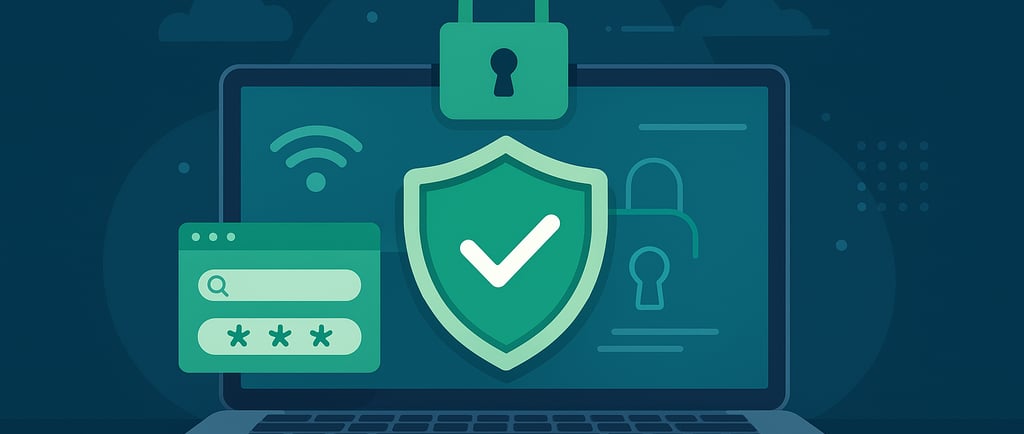VPNs for Remote Work – Keeping Your Office Secure Anywhere
VPN


Remote work has become a permanent part of modern business. Teams now collaborate across cities, countries, and time zones. While this flexibility is great for productivity and work-life balance, it also creates new challenges for security. This is where VPNs (Virtual Private Networks) step in, providing businesses and employees with a secure way to connect from anywhere.
Why Remote Work Needs VPNs
When employees connect to company resources from home, coffee shops, or airports, they often rely on unsecured Wi-Fi networks. This opens the door to:
Hackers intercepting sensitive data.
Phishing attacks that exploit insecure connections.
Data leaks if employees use personal devices without protection.
A VPN solves these issues by creating an encrypted tunnel between the employee’s device and the company’s servers. This makes it nearly impossible for outsiders to spy on or tamper with the data.
Benefits of VPNs for Remote Teams
1. Secure Access to Company Resources
Employees can log into intranets, shared drives, and internal apps as if they were in the office.
2. Data Encryption
All internet traffic is scrambled with encryption, protecting emails, file transfers, and login credentials from prying eyes.
3. Geo-Independence
Remote workers can connect through servers in their company’s country, ensuring consistent access to regional tools and services.
4. Compliance with Regulations
Industries like healthcare and finance require secure handling of sensitive data. VPNs help companies stay compliant with laws like GDPR or HIPAA.
5. Cost Savings
Instead of investing in expensive dedicated lines or infrastructure, businesses can use VPNs as a more affordable security solution.
Business VPN vs. Personal VPN
While personal VPNs are designed mainly for streaming, browsing, and privacy, business VPNs are built for professional use:
Centralized management – IT teams control access and permissions.
Dedicated IP addresses – Employees log in with company-assigned IPs.
Integration with enterprise tools – Works with firewalls, monitoring, and identity management systems.
Stronger security policies – Enforced encryption and authentication standards.
Challenges of Using VPNs for Remote Work
1. Performance Issues
If too many employees connect to the same server, speeds can slow down.
2. User Error
Employees forgetting to turn on their VPN or misconfiguring it can lead to data leaks.
3. Scalability
As companies grow, they need more robust VPN solutions that can handle hundreds or thousands of users.
4. Device Diversity
Remote teams use different devices and operating systems. Ensuring compatibility across Windows, macOS, iOS, and Android requires careful planning.
Best Practices for Remote Work VPNs
Choose a Reliable Business VPN – Select a provider with strong encryption, no-logs policy, and enterprise features.
Use Multi-Factor Authentication (MFA) – Adds an extra layer of protection beyond passwords.
Enable Always-On VPN – Ensures connections are secure by default.
Educate Employees – Train staff on VPN use, phishing awareness, and device hygiene.
Monitor and Update Regularly – IT teams should track VPN performance and keep software updated to patch vulnerabilities.
The Future of VPNs in Remote Work
As businesses adopt hybrid and fully remote models, VPNs will continue to evolve. Some emerging trends include:
Zero Trust Security Models – VPNs combined with strict identity verification.
Cloud VPNs – Replacing traditional hardware with scalable cloud-based solutions.
AI-driven traffic monitoring – Detecting suspicious behavior in real time.
Integration with collaboration tools – Seamless security inside apps like Slack, Zoom, or Microsoft Teams.
Final Thoughts
VPNs have become essential for remote work security. They protect sensitive company data, ensure compliance with regulations, and allow employees to work from anywhere without sacrificing safety.
The key for businesses is to choose the right type of VPN, train employees to use it properly, and integrate it into a broader cybersecurity strategy.